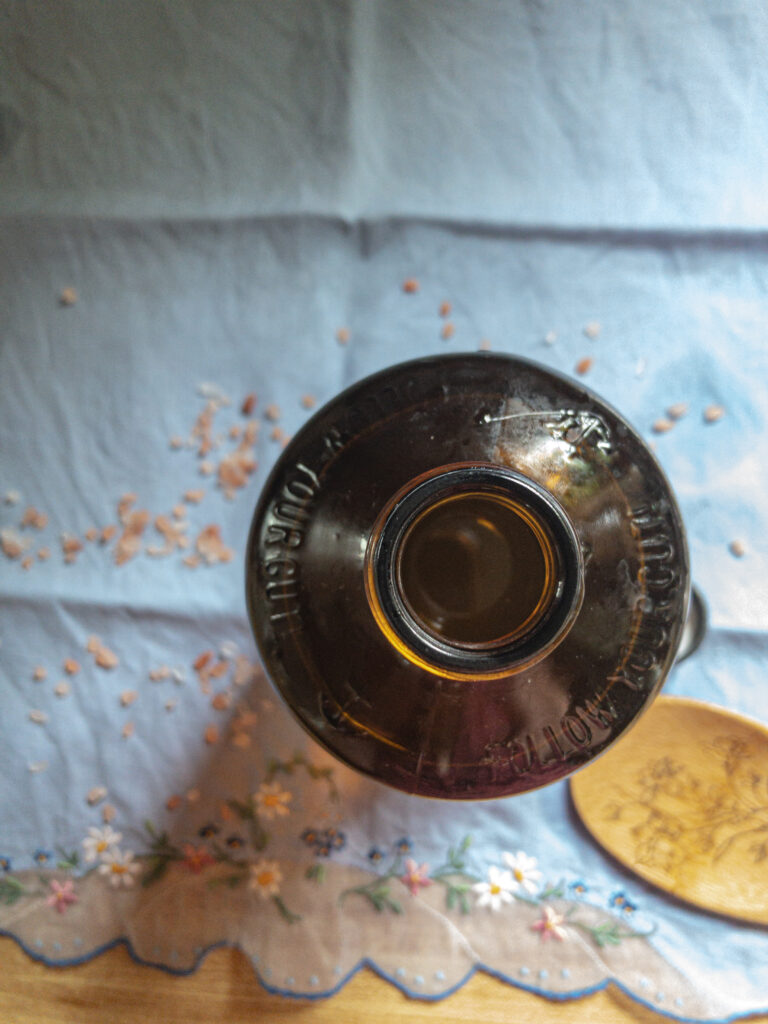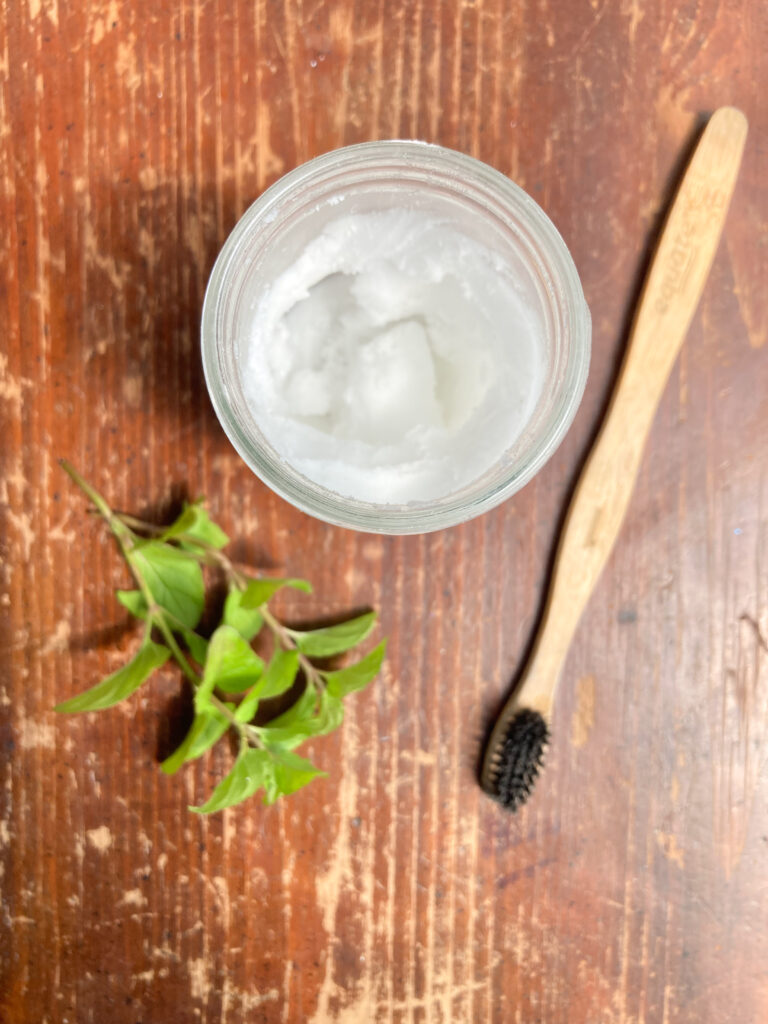Himalayan Salt Rinse- A Remineralizing Mouthwash
Himalayan Mouthwash
This natural, alcohol-free mouth rinse has many benefits for you teeth, oral hygiene and overall health. Here is a recipe that is simple to follow and made with only a couple of ingredients. This is a great option if you’re looking for a mouthwash for everyday use or temporary relief from pain, illness and infection. Follow along as I explain why and describe the steps for this quick, easy recipe.

Treat Bad Breath
This recipe is successful at curing bad breath and dry mouth. As a disinfectant, it will kill the bacteria lingering in your mouth that cause these symptoms. A lot of times, the bacteria builds up in the areas that you are not able to reach with your toothbrush. That’s what makes a mouthwash crucial for eliminating bacteria, because it is able to hit those unreachable spots. The salt in this rinse will also help to balance the pH of your mouth, which creates an environment unsuitable for bacteria.
Remineralize your Teeth
Himalayan salt has lots of natural minerals that your body needs. Using this mouthwash gives your teeth minerals for remineralization, which helps your enamel to protect your teeth. This is very important since you are exposed to things on a daily basis that slowly break down your enamel. With a strong enamel, you can avoid cavities and tooth rot. These same minerals are also nourishing to your body. Your body relies on minerals in order to keep all your systems functioning properly, and you need them regularly. Using a salt rinse everyday will give you a dose of minerals that your whole body will benefit from.
Promote Healing
Salt is an anti-inflammatory and an anti-bacterial, which gives it so many functions in your oral health. Doctors recommend using a salt rinse rather than an alcohol based mouthwash following an oral procedure. This is because it is healing and can also relieve pain. It is a great option because it will prevent infection or disease. A salt rinse can heal and soothe symptoms of irritations like ulcers, canker sores, wounds, and toothaches. It is also recommended by dentists because it can cure and relieve gum disease, if it is not in an unmanageable state.
Build Immunity
If you use a salt rinse everyday, it is proven that you are less likely to get sick. This is because being a disinfectant, the salt will kill any bacteria that cause colds and sickness before you even experience symptoms. If you are already sick, it will help with fighting off the illness. It will fight off a sore throat by killing the bacteria causing your symptoms.
Saltwater Rinse Recipe
- 1/2 to 1 Tsp Himalayan Salt
- 1 Cup Water
- Optional: ~5 Drops Essential Oils
- I simply measure out my water, usually making a double batch, then measure out my salt.
- Once you add the salt to the water, allow it to sit long enough that it can fully dissolve. You can heat the water to speed up the process
- Add whatever essential oils you like. You only need a small amount of oil in this recipe, I use between 5 and 10 drops per 2 cups of mouth rinse.
- Stored in an airtight bottle out of direct sunlight.
- Swish thoroughly to kill any lingering bacteria after brushing.
- I use this rinse at least once a day, usually before bed. In the mornings, I prefer to use my homemade mouthwash for bad breath which is also great for whitening. You will have to decide what works for you and how often you need to do this salt rinse.
Essential Oils for Oral Hygiene
Essential oils are a great way to add some extra antimicrobial properties. At this point, there is quite a bit of research showing how beneficial essential oils can be in small amounts. In this recipe, they can help with gum health, tooth decay or infection, and killing the bacteria that cause bad breath. Nonetheless, they will leave your breath smelling good and your mouth feeling fresh. Here is a list of options for oils that are good for your oral health:
- Clove
- Cinnamon
- Teatree
- Myrrh
- Peppermint
- Spearmint
Be sure to do your research before putting just any oil in your mouth. Some oils are not suitable for ingestion and some can have negative effects on your teeth. Also take into consideration if your child will be using this mouthwash. Always start with a small amount of oil to be sure you don’t have a sensitivity to it before increasing the amount for a stronger flavor. Less is always more when it comes to essential oils.


One Comment